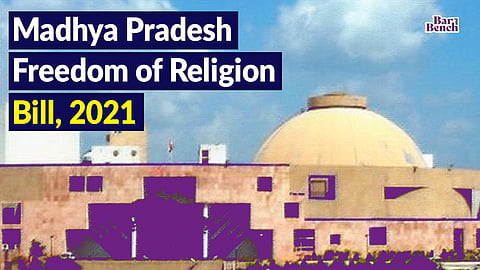
- News
- Columns
- Interviews
- Law Firms
- Apprentice Lawyer
- Legal Jobs
- हिंदी
- ಕನ್ನಡ

The Madhya Pradesh Legislative Assembly today passed the Madhya Pradesh Freedom of Religion Bill, 2021, which aims to prohibit conversions from one religion to another by misrepresentation, allurement, force and undue influence.